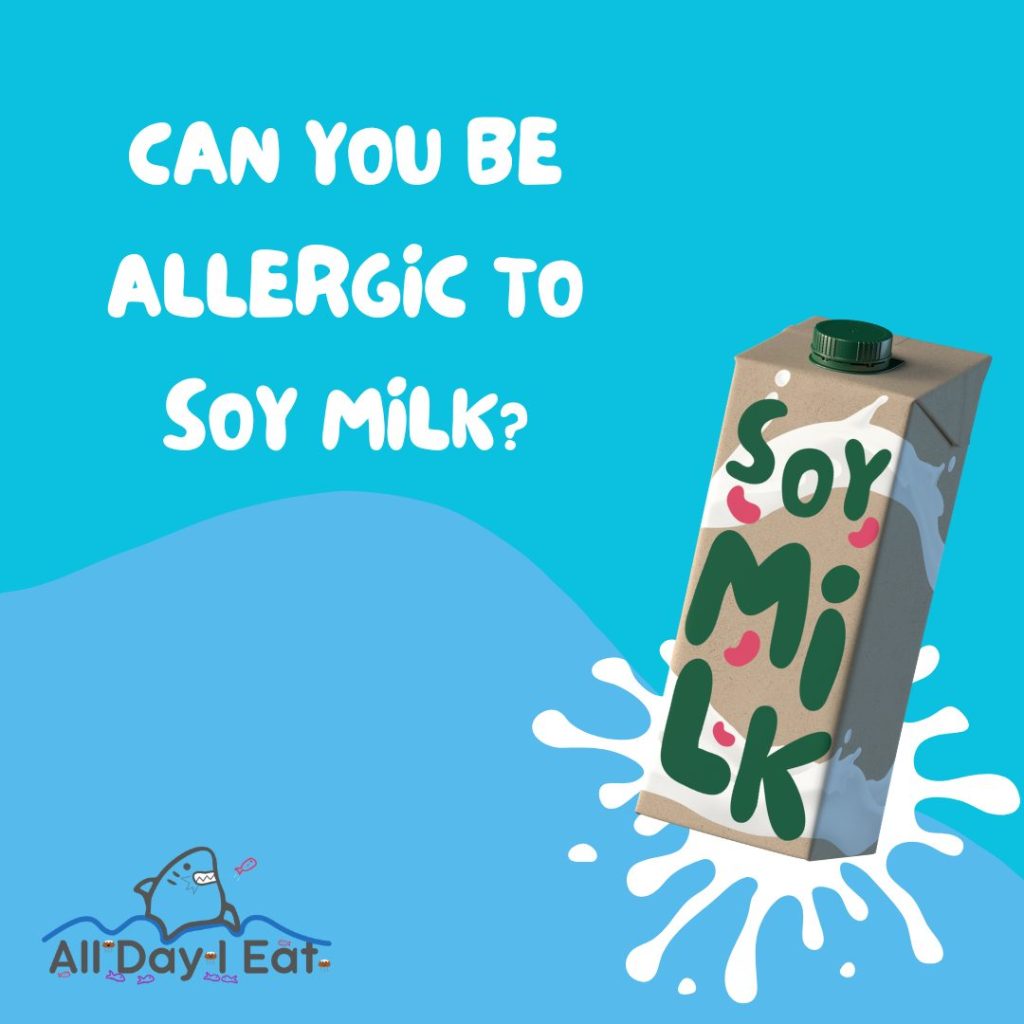
Can you be allergic to soy milk? To answer that question, let’s backtrack for a moment.
Do you love the creamy texture and nutty flavor of soy milk? Are you wondering if it’s possible to be allergic to this popular dairy alternative? Well, the answer is yes, you can indeed be allergic to soy milk.
Allergies occur when your immune system reacts negatively to certain substances; soy milk is no exception. If you experience signs and symptoms such as hives, itching, swelling, or difficulty breathing after consuming soy milk, it’s essential to consider the possibility of a soy milk allergy. This allergy can also lead to digestive issues like nausea, vomiting, or diarrhea.
But don’t worry. There are ways to manage a soy milk allergy. The first step is to avoid consuming soy milk and other soy-based products. Instead, explore alternative plant-based milk options like almond, coconut, or oat.
Reading food labels carefully and discussing your allergy with restaurant staff can help you make informed choices and prevent accidental exposures.
Remember, your health and well-being matter, and there are always alternatives available to ensure you can still enjoy a delicious and nutritious milk substitute without any allergic reactions.
Content Guide
Signs and symptoms if you are allergic to soy milk
If you’re allergic to soy milk, you might experience a range of distressing signs and symptoms. These can vary from mild to severe, and it’s essential to be aware of them so you can take the necessary precautions.
Common signs of a soy milk allergy include itching, hives, and lips, tongue, or throat swelling. You might also experience difficulty breathing, wheezing, or coughing. In some cases, a soy milk allergy can lead to more severe symptoms like abdominal pain, vomiting, or diarrhea.
It’s crucial to seek medical attention if you experience these symptoms after consuming soy milk. Remember, your health and well-being are important, so always listen to your body and take the necessary steps to keep yourself safe.
Managing the symptoms if you are allergic to soy milk
When managing this sensitivity, it’s essential to be aware of alternative dairy-free options. You can find various non-dairy milk substitutes that can be alternatives to soy milk.
Almond milk, rice milk, coconut milk, and oat milk are all great options that offer different flavors and textures. Additionally, you can use dairy-free yogurt or cheese made from alternative ingredients like cashews or almonds.
It’s also important to read food labels carefully to avoid any hidden sources of soy. Don’t hesitate to ask the server or chef about soy-free options or ingredient substitutions when dining out.
By being proactive and informed, you can still enjoy a delicious and satisfying dairy-free diet while managing your soy milk allergy.






Konnichiwa! (Hello!) I'm Pat Tokuyama, a Japanese tofu cookbook author, who travels for music, food, and adventure. If you like Japanese tea, checkout some of the newestorganic japanese tea, matcha bowls and noren and more!
** Curious about the Plant Based Japanese Cooking Club? ** Learn more here!